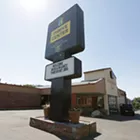If there were any place you'd expect a Republican attempt to replace Barack Obama's Affordable Care Act — Obamacare — to receive enthusiastic support, it would be in deep-red Idaho.
But even in Idaho, the public and politicians are wary.
"They sent me to Washington to get rid of Obamacare, and replace it with something that will, once and for all, create a health care system that allows the market to deliver lower costs and focus on patients," Idaho U.S. Rep. Raul Labrador said in a statement. The House Republicans' American Health Care Act, he added, was not that bill.
Thus, Idaho is caught in a bind: State legislators recognize major deficiencies with Idaho's health care system. But with Obamacare considered politically toxic, and congressional Republicans' alternative seen as an inadequate solution, local Idaho politicians are seeking to repair the state's broken health system themselves.
THE GAP
While states like Washington worry about what will happen if a Republican health care plan phases out Obamacare's Medicaid expansion, Idaho never expanded Medicaid to begin with. The political cost was too high.
"Idaho legislators are responding to their constituents, who are not excited about taking on another entitlement," explains Idaho state Rep. Luke Malek of Coeur d'Alene, a comparatively moderate Republican for North Idaho.
That reticence left about 78,000 Idaho residents stuck in an absurd kind of no-man's land: They earn too little to qualify for Obamacare's tax credits, but too much to qualify for Medicaid without the expansion.
The proposed American Health Care Act wouldn't fix that. In fact, the bill would restrict the growth of how much federal funding state Medicaid programs get. While it's predicted to lower premiums on younger Americans, it would do that, partly, by raising costs on older Americans so much that some may ditch their health insurance entirely.
"The report from the Congressional Budget Office about the American Health Care Act confirms that the [Republican replacement] doesn't provide comprehensive coverage or benefits for Idahoans in the gap," Idaho Department of Health and Welfare Director Richard Armstrong writes in a statement. "It's clear now that it is up to the states to provide health care coverage for those residents who need it the most."
These are residents like 47-year-old Susan Allen, who gets her insurance through her part-time job manning the self-checkout aisle at the Walmart in Lewiston. She says her deductible is so high that she's considering skipping out on crucial eye injections used to treat her macular degeneration. She already has too much medical debt. Her 51-year-old husband can't get insurance on her plan. Despite his migraines sometimes resulting in late-night emergency room visits, he doesn't have insurance at all.
"It would be nice if Idaho could make it a little bit more affordable, if possible," Allen says.
Even with the Republican health care reform plan looming, advocates like Lauren Necochea, director of Idaho Voices for Children, are urging Idaho to expand Medicaid while it still can.
"Having health care for a couple years is better than not having any health care for the foreseeable future," Necochea says.
CLOSING THE GAP
But Malek has long argued that Idaho politicians should focus on fixing the root causes of rising health care costs. Low-income, uninsured Idahoans end up flooding expensive emergency rooms when they should be going to the primary care doctor, driving up costs for everyone.
"Minor problems become bigger problems, so the system has to compensate," Malek says. "That's a huge difference between Washington and Idaho. Our safety net system is the emergency room."
Even if Idaho did choose to expand Medicaid, Malek says there simply aren't enough primary care doctors in the state, especially in rural areas. Even with insurance, the wait to see a doctor can be a long one.
"If your choice is wait three weeks or go to the ER, you're going to go to the ER," he says.
Malek and other Idaho Republicans have sketched out a plan to address the problem at the state level: Dramatically increase the number of primary care doctors by increasing the number of family medicine residency slots. Create a state-funded student loan forgiveness program for doctors who agree to practice medicine in underserved populations. And finally, use state funds to directly pay primary care providers and health clinics to offer more charity care to the uninsured.
"This is not a cure-all," Malek acknowledges. It wouldn't address the needs of low-income Idahoans who need to see specialists or go to the hospital. But it's a start, he argues.
The plan still faces a steep climb before becoming law. On Monday, an attempt to spend $10 million in tobacco settlement funds to cover primary care for about 15,000 of the most chronically ill uninsured Idaho residents died in the Senate.
But for Malek, that climb is necessary.
"The cost of health care continues to skyrocket," he says. "The cost of health care is hurting at home." ♦























